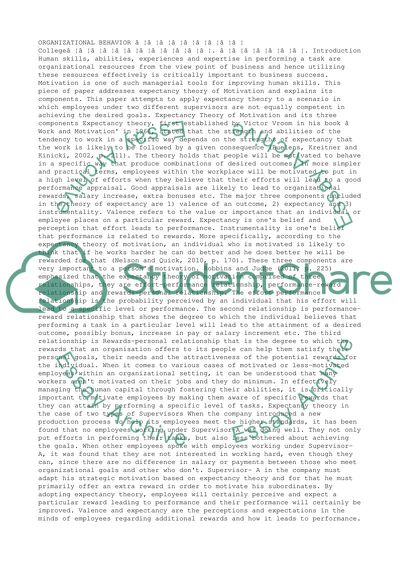Organizational Behavior & Leadership Essay Example | Topics and Well Written Essays - 750 words - 1. Retrieved from https://studentshare.org/management/1442578-organizational-behavior-leadership
Organizational Behavior & Leadership Essay Example | Topics and Well Written Essays - 750 Words - 1. https://studentshare.org/management/1442578-organizational-behavior-leadership.


